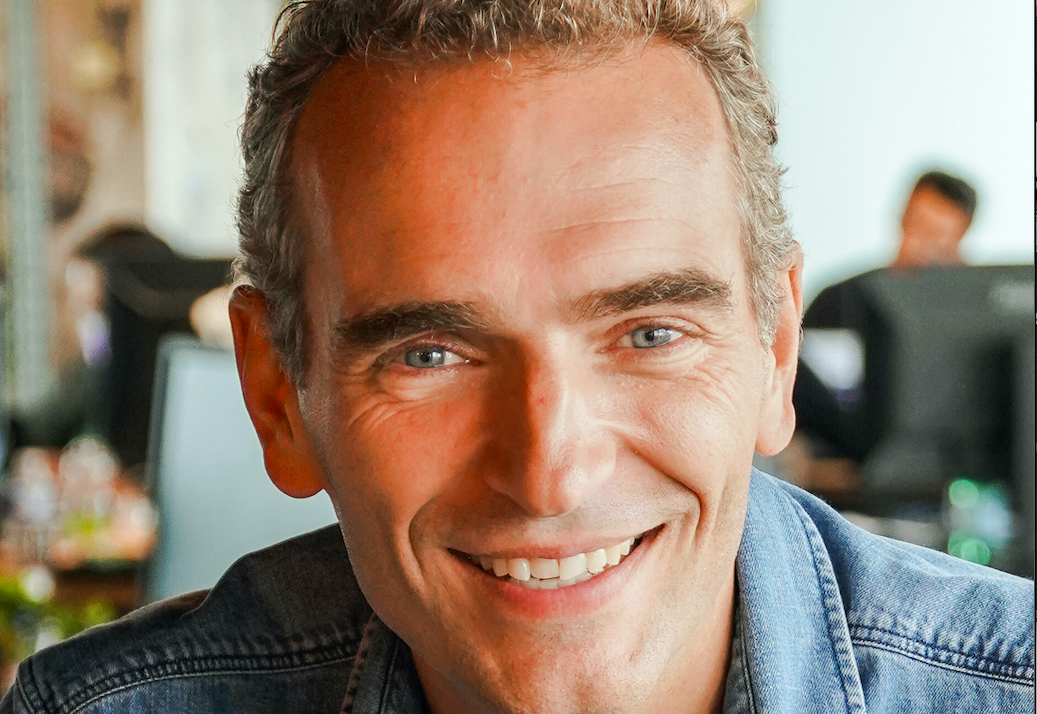What do Slack, Venmo, Mailchimp, DuckDuckGo, Square, Asana and Airbnb have in common? All of these now global technology companies were started in 2008 and 2009 in the middle of the great financial crisis
It is no accident that these businesses’ origins were during the same type of recession and stock market uncertainty we are experiencing today. But it also was not easy. How can entrepreneurs raise money and ultimately thrive in these difficult times?
While reflecting on my own journey as a founder and the conversations I have had with fellow entrepreneurs and investors on how to launch and scale a new business in these challenging times, my motto is still - Mission possible. Despite the challenges we see today, I am convinced anyone, no matter where they come from can build a successful business.
None of the entrepreneurs I know has kept their original business plans during a challenging context – if they didn't adapt, they would have faced extinction. Phil Hutcheon is living proof of how to adapt and pivot a business in difficult times. Founder of DICE, a ticketing startup created in the UK, founded in 2014 (5 years before COVID-19), he had the initial idea to make discovering and buying tickets easy and accessible for concerts and cultural events. But in March 2020 when global lockdowns began, live concerts and events disappeared almost overnight.
Phil quickly realised that fans were still in need of music and enjoyment, even if stuck in their living rooms. Six weeks later, DICE unveiled a new business model of live events: DICE TV...all online and with live audience participation. By year’s end, DICE TV was bringing in millions in revenue, opening a new channel for the business that will likely remain even after the pandemic subsides.
What do Slack, Venmo, Mailchimp, DuckDuckGo, Square, Asana and Airbnb have in common? All of these now global technology companies were started in 2008 and 2009 in the middle of the great financial crisis
One of the challenges of entrepreneurship is that you cannot expect to only operate in times of prosperity. Today rising interest rates have caused a significant decline in the stock market as central banks work to fight inflation across Europe and the US. The Nasdaq, an index that largely tracks technology companies, has declined over 30% this year, and estimates suggest investors have lost over nine trillion dollars in stock market value over the same time. Venture capital investments which drive funding for early-stage entrepreneurs are also down significantly. Data from CBinsights revealed the largest quarterly percentage decrease in funding in ten years, dropping 34%.
Here is the good news for founders. Despite these drops in the market, investors still deployed $74.5B in venture capital to 7900+ new startups in the last three months*. This remains some of the highest levels of funding on record. In comparison, from Q1 2018 to Q2 2020 the largest quarter of financing was $82B and on average was under $60B. Starting during Covid as governments lowered interest rates and capital flowed freely we saw exponential increases in the pace of investment and valuation. Rounds were exceptionally larger, fast and at a higher price. Today, the market is resetting back from these historically high prices and paces of investment. But when you zoom out, there is still record investment in entrepreneurship and startups.
If you are thinking of starting your own business today, look beyond the headlines. The process of raising money is complex, time-consuming and harder in difficult times. But the truth is that many investors know that these kinds of contexts can bring new opportunities. My own firm and most of our peers have remained active throughout 2022 and plan to continue doing so. However, it is critical in today's market that you can explain why your company’s mission matters. In a world where capital will be more scarce and expensive, investors are looking for companies with a clear social or environmental mission and founders that can attract the talent and capital required to scale.
When talking about mission-driven companies, I have to mention Too Good To Go, a company that fights the growing issue of food waste. The co-founder Lucie Basch put mission at the core of the business, and said: “If I’m not able to take the ‘plunge’ and do something with purpose that positively contributes to a society in which I want to live, then nobody will.” Launched in 2016, Too Good to Good is now present in the U.S. and 16 other countries, including France, Canada, Germany, Italy, Portugal, and the United Kingdom, has 67 million app users, more than 128.000 businesses connected to its platform, has saved more than 174 million meals from landfills, and experienced 87% growth in 2021 and expects 50%+ in 2022. And in the time of challenges, Too Good To Go has never been so successful.
It’s also important to highlight how these types of market conditions can benefit young companies. The slowing economy and pace of funding means less competition in the market. As companies large and small slow recruiting, that is your opportunity to attract the best talent and engineers to your company. With less investment flowing into companies to spend on more growth advertising costs should decrease as companies aim to grow less aggressively. If you turn the challenges of today’s economy into strategic opportunities for you, new business investors will follow.
Don’t be afraid to start your own business today. The economy's challenges are filled with opportunity and we need entrepreneurs like you to help solve our most pressing challenges. In the end, the task might be harder but possible to achieve.
Alexandre Mars is a serial entrepreneur, philanthropist, and author of Mission Possible: How to Build a Business for Our Times, published by Nicholas Brealey Publishing (Hachette) on 10 November 2022 and available in paperback, priced at £16.99.











